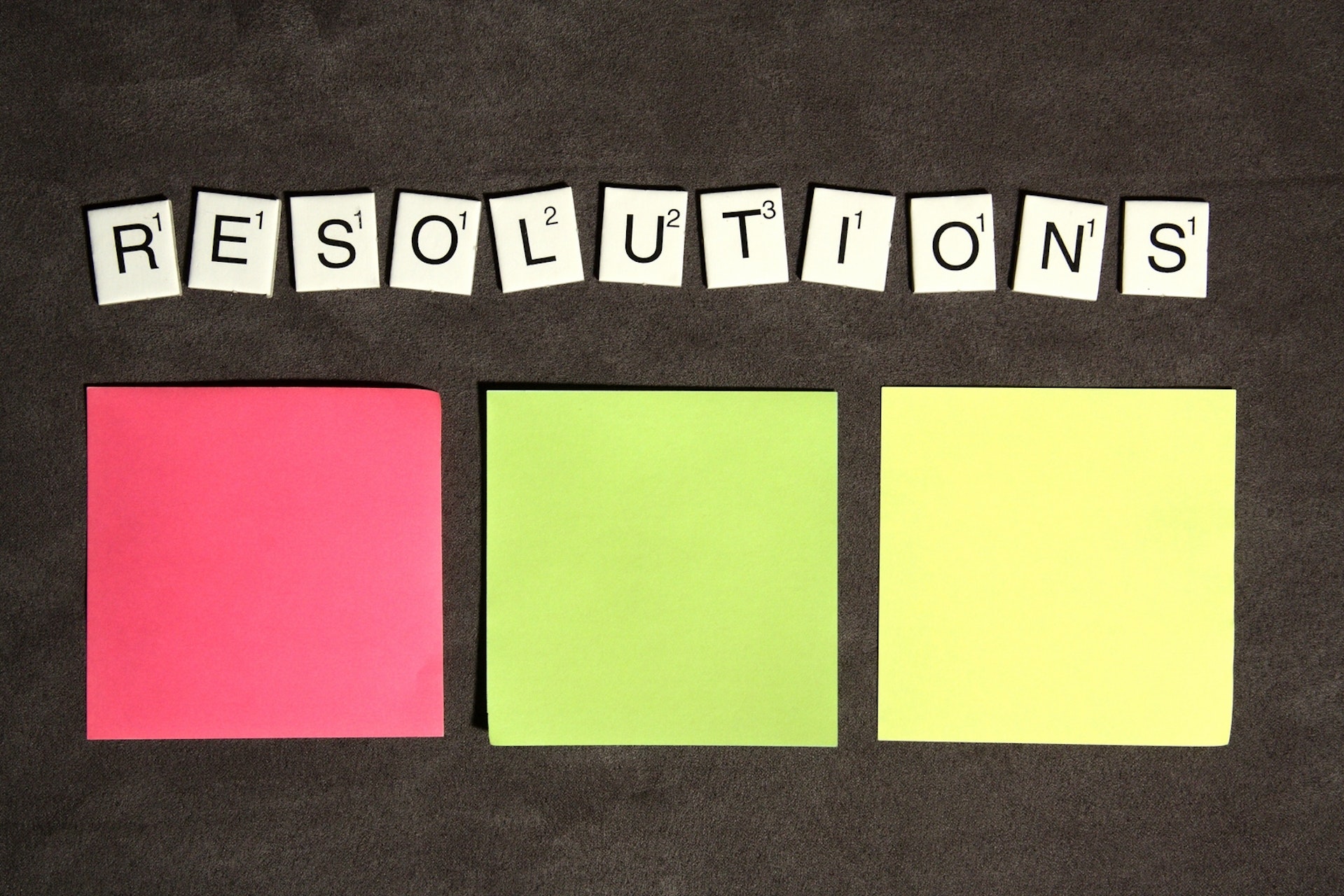Do you have a habit of not following through on your New Year’s Resolutions? You’re not alone. According to research, less than 8% of people follow through on their New Year’s Resolutions each year.
Most people start the New Year ready to crush new goals, especially entrepreneurs. Entrepreneurs are especially motivated at the start of the year to improve themselves and their businesses. However, many people, including entrepreneurs, set huge, unrealistic goals that they can’t stick to. So, I’ve rounded up some tips to increase your chances of keeping your New Year’s Resolutions as an entrepreneur.
#1 Be Realistic When Creating New Year’s Resolutions

The easiest way not to achieve a New Year’s Resolution is to create unrealistic goals. Most people set unreasonable goals at the beginning of the new year because they’re feeling motivated and want to make changes as soon as possible. Although these people have good intentions, they aren’t setting themselves up for success. Instead, they’re overloading their plate, which can make achieving their goals much more difficult.
The Smaller, the Better
Instead of setting huge goals for yourself after the New Year, try to set smaller goals instead. Setting small goals or breaking up larger goals into smaller ones can greatly improve your chances of achieving your New Year’s Resolutions. However, just because these goals are small, doesn’t mean they’re any less important. Smaller goals can have just as much if not more of an impact than larger goals if you stick with them.
Tips for Setting Realistic Goals
Break up larger goals into smaller goals
Let’s say your goal is to exercise for at least 30 minutes each day. However, exercising for 30 minutes each day might be too large of a goal and might intimidate you. Instead, try to break up that goal into smaller steps.
For example, you could start with 10 minutes of daily exercise and work your way up as you build momentum. As a result, you avoided overwhelming yourself and built a healthy, sustainable habit!
Be honest with yourself
You know yourself better than anyone else. Don’t create habits that don’t align with your personality or lifestyle just because you think you should. Instead, use your strengths and lifestyle to create realistic goals that are personal to YOU.
For example, let’s say you want to become a better leader but you’re an introvert and struggle with social anxiety and communication. Instead of attending leadership seminars and events that force you to be with a lot of people, you could take online courses or watch videos by yourself. As you build leadership skills, then you can decide whether or not you want to challenge yourself.
#2 Be Specific

Many people set large, vague goals that they never achieve because they weren’t specific enough. While it’s important to dream big and set large goals for yourself, it’s equally as important to set specific goals with tangible steps you can follow.
Tips for Setting Specific Goals
Take a large goal and break it down into smaller goals. Then, take each small goal and break it into smaller, achievable steps. By being more specific and breaking down large goals, you can better visualize the exact steps you need to take to achieve your goals.
#3 Make a Plan for Achieving Your New Year’s Resolutions

Making a plan is a great way to take control of your goals and keep yourself accountable. Once you’ve created specific, realistic goals, you can create a reasonable action plan to work towards achieving them.
Tips for Setting Specific Goals
Schedule time to take action on your goals
Setting aside time to work on your goals can greatly increase your chances of achieving them. For example, try to pick an empty pocket of time that is convenient for you to work on your goals. This segment of time can be as short or long as your schedule allows. The most important thing is that you take some time each day to work on your goals, as this can help you build a habit.
Try to be realistic when creating a plan to work on your goals
Although it might be tempting to spend as much time working on your goals as possible, you could face burnout or miss spending time with your loved ones. To avoid these issues, you could start with 10 minutes and work your way up as your schedule allows.
#4 Develop Discipline

Many people start the New Year off with a burst of motivation to achieve their goals. Unfortunately, their motivation runs out and they stop working towards their goals. Instead of relying on motivation to achieve your goals, try to use discipline instead.
Discipline is one of the key ingredients to keeping your New Year’s Resolutions because it allows you to establish habits that build momentum. Over time, the momentum you build from habits can produce motivation, allowing you to work even harder toward your goals. Even on days when you don’t feel motivated, you can tap into discipline to keep working on your goals.
#5 Find an Accountability Partner

It can be easier to quit when there’s no one to keep you accountable. If you’re serious about achieving your New Year’s Resolutions, find an accountability partner who can push you to keep working hard even when you feel like giving up.
Tips for Setting Specific Goals
Ask a friend or family member to keep you accountable
Asking a friend or family member to keep you accountable is a great way to prove to yourself that you’re serious about working toward your goals. In addition, your friends and family might motivate you to keep working hard.
Join a community of likeminded individuals to keep you accountable
Joining a community of likeminded individuals who are also working on their goals can provide support and motivation as you work toward your goals.
Ask someone to join you
Asking someone to join you can keep you accountable because you have another person depending on you. For example, let’s say you want to have more effective meetings with your team. You can ask one or a few of your team members to help you develop a more efficient meeting strategy to implement.
#6 Celebrate Your Wins

Although it might be tempting to only focus on the end goal, celebrating your wins can help motivate you and help you appreciate your progress. For example, let’s say you developed a more effective meeting strategy to reduce meeting times to 30 minutes or less. As you work toward that goal, reward yourself and your team after each milestone.
#7 Track and Measure Your Progress

Tracking and measuring your progress can help you visualize what you’ve accomplished and what you need to work on to achieve your goals. Tracking and measuring progress can also motivate you to keep working hard because you can visually see your progress.
#8 Practice Positive Thinking

Many people brush positive thinking off because they think it doesn’t actually work. However, positive thinking can make or break your success when it comes to achieving your goals. Positive thinking can help you become more optimistic, allowing you to see the good in every situation. Positive thinking can also boost your confidence, energy, and motivation to continue working toward your goals. Lastly, positive thinking can help you be more grateful for your progress and appreciate your accomplishments.
#9 Don’t Give Up On Your New Year’s Resolutions

Although it can be tempting to give up your New Year’s Resolutions, especially if you haven’t seen any results, giving up is the worst thing you can do. No matter how much or how little progress you might have made toward your goals, progress is progress. You started. You took a chance on yourself and believed you could achieve your goals. That’s what matters.
Don’t worry if you’re not where you thought you would be. As long as you’re actively taking the steps to achieve your goals, tracking your progress, and staying disciplined, you can succeed in achieving your goals.

